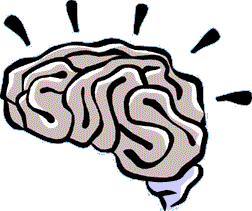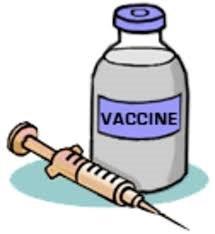Clinical Trial Offers Promising Peanut Patch
May 17th, 2023 A wearable patch could prevent severe allergic reactions in toddlers with peanut allergies, according to the results of a new clinical trial.
A wearable patch could prevent severe allergic reactions in toddlers with peanut allergies, according to the results of a new clinical trial.
Peanut Patch Trial
The late-stage trial involved more than 200 children ages one to three with peanut allergies.
The trial found that after wearing the experimental patch around 22 hours a day for a year, 67 percent were able to tolerate 300 to 1,000 milligrams of peanut protein—the equivalent of one to four peanuts.
The patch contains a small does of peanut butter equal to about 1/1000th of a peanut kernel. A new patch is applied each day and worn between the shoulder blades, so the skin absorbs the protein. Immune cells then carry the protein to other parts of the body, where they help suppress the allergic response.
The findings were published in the “New England Journal of Medicine.”
There are no approved treatments for children under four with peanut allergies. This is the first to study a non-oral option for this age group.
Peanut Allergy Symptoms
Peanut allergy occurs when your immune system mistakenly identifies peanut proteins as something harmful. An allergic response to peanuts usually occurs within minutes after exposure.
Peanut allergy signs and symptoms can include:
- Digestive problems, such as stomach cramps and nausea
- Itching or tingling in or around the mouth and throat
- Shortness of breath or wheezing
- Skin reactions such as hives, redness or swelling
- Tightening of the throat
About one in 50 children in the United States have a peanut allergy. A 2018 report determined that the prevalence of peanut allergies in the country tripled in the previous two decades.
What IAA has to Say
Insurance Administrator of America hopes that this new patch will allow children to live their lives without worrying about having an allergic reaction. IAA knows that these breakthroughs can make a world of difference.
Surgeon General Issues Advisory on Loneliness
May 10th, 2023 Widespread loneliness in the United States poses health risks as deadly as smoking a dozen cigarettes daily, costing the health industry billions of dollars annually, according to the Surgeon General’s advisory.
Widespread loneliness in the United States poses health risks as deadly as smoking a dozen cigarettes daily, costing the health industry billions of dollars annually, according to the Surgeon General’s advisory.
The Loneliness Epidemic
The advisory noted that loneliness and isolation can have “destructive impacts” on our health as individuals and around the country.
A key takeaway from the Surgeon General’s advisory is that social connection is as essential to our long-term survival as food and water. It is said that loneliness is more widespread than other major health issues.
Loneliness increases the risk of premature death by nearly 30 percent, with the report revealing that those with poor social relationships also had a greater risk of stroke and heart disease. Isolation also elevates a person’s likelihood of experiencing depression, anxiety, and dementia, according to the research.
Research also showed that loneliness and isolation are linked to sleep problems, inflammation, and immune changes in younger adults. In older people, they are tied to symptoms such as pain, insomnia, depression, anxiety, and a shorter life span. In people of all ages, they may be associated with higher risk of heart disease, stroke, diabetes, addiction, suicidality and self-harm, and dementia.
About half of U.S. adults say they’ve experienced loneliness, according to the report.
The loneliness epidemic is hitting young people, ages 15 to 24, especially hard. The age group reported a 70 percent drop in time spent with friends during the same period.
The crisis deeply worsened when COVID-19 spread, prompting schools and workplaces to close and sending millions of Americans to isolate at home away from family and friends. Americans spent about 20 minutes a day in person with friends in 2020, down from 60 minutes daily nearly two decades earlier.
Benefits of Socialization
Socializing not only helps get you out of your bubble, but helps your health too:
- Better mental health: It can lighten your mood and make you feel happier.
- Lower your risk of dementia: Social interaction is good for brain health.
- Promotes a sense of safety, belonging and security
It also allows you to confide in others and let them confide in you.
What IAA has to Say
Insurance Administrator of America wants you to get out there and socialize. IAA knows it is not always easy, but it could help your health.
Concussion Recovery may Take Longer Than Initially Thought
May 3rd, 2023
Concussion Recovery Takes Longer Than Six Months
Researchers from the United Kingdom who studied concussion patients found that almost half had changes in how regions of the brain communicate with each other. This may cause long-term symptoms, including fatigue, and impaired thinking and memory.
The researchers said only about half of people who suffer a concussion are fully recovered within six months, far less than the 90 percent some other recent studies have predicted.
In this study researchers used a fMRI or functional MRI, which looked at how different areas of the brain coordinate with each other.
For the study, the team compared fMRI scans from 108 patients with mild traumatic brain injury with those from 76 healthy volunteers. They also assessed patients for ongoing symptoms.
About 45 percent were still having symptoms after their brain injury, including fatigue, poor concentration, and headaches. These patients had abnormalities in the brain area called the thalamus. This region integrates all sensory information and relays around the brain.
Somehow, concussion was associated with increased connectivity between the thalamus and the rest of the brain. With this increased connectivity, as the thalamus was trying to communicate more, a patient’s prognosis was poorer.
Signs and Symptoms
A concussion is a traumatic brain injury that affects your brain function. Effects are usually temporary, but can include headaches and problems with concentration, memory, balance, and coordination.
The signs and symptoms of a concussion can be subtle and may not show up immediately. They may include:
- Blurry vision
- Drowsiness
- Fatigue
- Headache
- Nausea
- Ringing in the ears
- Vomiting
Your brain has the consistency of gelatin. It is cushioned from everyday jolts and bumps by cerebrospinal fluid inside your skull. A violent blow to the head and neck or upper body can cause your brain to slide back and forth forcefully against the inner walls of your skull.
What IAA has to Say
Insurance Administrator of America wants you to be kept up to date in the world of health. Remember, with IAA one call does it all.
Researchers Find Promise in New Skin Cancer Vaccine
April 26th, 2023 The risk of recurrence of a deadly skin cancer was reduced by nearly half when patients were treated with a mRNA vaccine and the immunotherapy drug Keytruda, according to a new study.
The risk of recurrence of a deadly skin cancer was reduced by nearly half when patients were treated with a mRNA vaccine and the immunotherapy drug Keytruda, according to a new study.
New Skin Cancer Vaccine has Potential
The trial focused on a personalized vaccine using mRNA technology that used mutations to target mutations unique to a patient’s cancer, but not the healthy cells in the body. All patients were diagnosed with either stage three or four melanoma.
To evaluate the effectiveness of the vaccine, the international team of researchers recruited 157 melanoma patients whose tumors had been surgically removed and who were at substantial risk of experiencing a recurrence of their cancer.
Fifty patients received only immunotherapy medication and 107 also got the personalized vaccination.
The research showed that nearly 79 percent of the 107 patients who received the mRNA vaccine in combination with Keytruda were cancer free after 18 months compared to just 62 percent of the 50 patients who were treated with only immunotherapy.
The researchers added that the rate of recurrence or death was 22.4 percent in the group who received both medications, compared to 40 percent of patients who received Keytruda alone.
The results came in Phase Two of the trial, with adverse side effects being like those seen in Phase One.
Signs of Skin Cancer
A change in your skin is the most common sign of skin cancer. This could be a new growth, a sore that does not heal or a change in a mole.
For melanoma specifically, a simple way to remember the warning signs is to remember the A-B-C-D-Es of melanoma:
- A-Asymmetrical: Does the mole or spot have an irregular shape with two parts that look very different?
- B-Border: Is the border irregular or jagged?
- C-Color: Is the color uneven?
- D-Diameter: Is the mole or spot larger than the size of a pea?
- E-Evolving: Has the mole or spot changed during the past few weeks or months?
Not all skin cancers look the same.
What IAA has to Say
Insurance Administrator of America wants you to know what is going on in the world of health. Keep up to date with IAA.
Sleep Apnea may Cause Brain Decline in Men
April 19th, 2023 A small study suggests that sleep apnea, a disruptive breathing disorder, may also prompt a decline in brain health among middle-aged men.
A small study suggests that sleep apnea, a disruptive breathing disorder, may also prompt a decline in brain health among middle-aged men.
Sleep Apnea and Men
Prior research has consistently chalked up any mental impairment observed among obstructive sleep apnea (OSA) patients to those conditions that present jointly with OSA. These include high blood pressure, high cholesterol, obesity, diabetes, cardiovascular, and other metabolic diseases.
The new study findings suggest that OSA may be sufficient for thinking capacity changes to occur as early as middle age, even in otherwise healthy individuals. The decline can manifest as significant memory loss, less impulse control, impaired spatial reasoning, and/or an inability to focus and think clearly.
For the study, the researchers decided to track the mental status of 27 male OSA patients who did not have any additional medical issues. All were between the ages of 35 and 70. Sixteen patients were diagnosed with mild OSA and 11 had severe sleep apnea. None had a current smoking habit or drinking problem, and no one was obese.
No women were included in the analysis.
The study authors performed a battery of thought processing tests among the pool of OSA patients, as well as among a comparison group of seven men who did not have sleep apnea. The result: patients with either mild or severe sleep apnea fared notably worse on the tests compared with the men who did not have OSA. Specifically, OSA patients scored more poorly in terms of short-term visual memory skills, the ability to remain vigilant, and the ability to plan and make decisions, and the ability to “read” emotions and social situations. The more severe their sleep apnea, the worse the patient performed, according to the report.
The research team noted that between 15 percent and 30 percent of all men have sleep apnea.
The findings were published in the journal “Frontiers in Sleep.”
Symptoms of Sleep Apnea
Sleep apnea is a potentially serious sleep disorder in which breathing repeatedly stops and starts. The most common symptoms of sleep apnea include:
- Awakening with a dry mouth
- Difficulty paying attention while awake
- Episodes in which the person stops breathing during sleep
- Excessive daytime sleepiness
- Gasping for air during sleep
- Insomnia
- Irritability
- Loud snoring
- Morning headache
It is estimated that as many as 26 percent of adults in the United States ages 30 to 70 have sleep apnea, according to the American Academy of Sleep Medicine.
What IAA has to Say
Insurance Administrator of America wants you to take sleep apnea seriously. IAA wants you to have a healthy night’s sleep.
